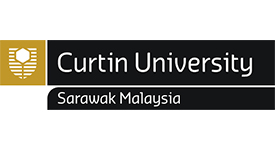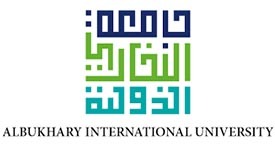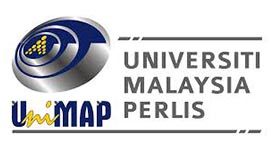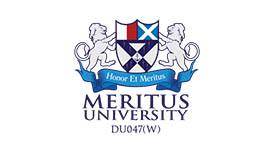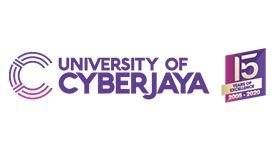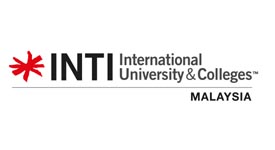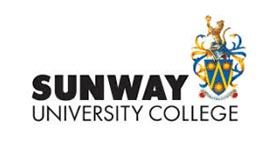Microbiology Course in Malaysia : Complete Guide for International Students

- Home
- Specialization
- Microbiology
Overview
A course in microbiology at Malaysia provides a unique combination of top-quality instruction and modern research facilities in internationally recognized universities. The various levels of study available include Master's, Bachelor's and PhD degrees, students are able to receive a thorough foundational understanding of the field of microbiology that covers areas such as virology and immunology. The top universities in Malaysia like The University of Malaya, provide inexpensive microbiology tuition fees in Malaysia which makes the country a great choice for students from abroad.
Tuition fees for the year vary according to the level of study, with scholarships and Microbiology courses for free in Malaysia are available to help reduce financial burdens. Students can look forward to rewarding careers possibilities in the fields of pharmaceuticals, healthcare and research, as well as attractive pay rates. Students who are from Asia, Africa, and the Middle East find Malaysia an appealing study location due to the diverse environment as well as its extensive assistance aids. Learn the reasons why studying a Master of Science in Microbiology Malaysia and other degrees could open the doors of global careers by pursuing Malaysia's highly-trained, relevant industry microbiology degrees.
Why Study a Microbiology Course in Malaysia?
Malaysia has become a popular location for those studying microbiology thanks to its top universities as well as its affordable costs and an emphasis on research. The top universities that offer microbiology programs in Malaysia are Malaysia's University of Malaya (located in Kuala Lumpur), Universiti Kebangsaan Malaysia (Bangi), as well as Universiti Putra Malaysia (Serdang). They are known for their academic excellence and modern research facilities and partnerships with world-class universities. They are therefore ideal to provide a broad microbiology curriculum.
Studying microbiology in Malaysia cost is generally low There are many grants and microbiology classes for free in Malaysia to help students from abroad. The majority of programs are taught in English however, applicants might be required to satisfy particular English standards, such as IELTS scores or TOEFL scores, making sure that they have a pleasant learning course.
There is the Master of Science in Microbiology Malaysia as well as other levels include specialization areas, such as the field of immunology, environmental microbiology and biotechnology. They prepare graduates for careers in high demand. The advanced infrastructure, multi-cultural environment as well as a strong academic emphasis, Malaysia offers compelling reasons to study microbiology in Malaysia to local and international students.
International Students Studying Microbiology Course in Malaysia
Malaysia is becoming increasingly an ideal destination for students from abroad who are pursuing studies in microbiology thanks to the world-class institutions that offer affordable and quality education as well as its an extensive student body. Here are some testimonials from students from abroad studying microbiology at well-known Malaysian establishments.
- High-Quality Education: Malaysia is home to reputable universities offering microbiology programs with comprehensive curricula that meet international standards.
- Affordable Tuition Fees: Compared to Western countries, tuition fees for microbiology courses in Malaysia are more affordable, making it an attractive option for international students.
- Cost of Living: Malaysia offers a relatively low cost of living, including accommodation, food, and transportation, which is appealing for students managing a tight budget.
- English as the Medium of Instruction: Most universities in Malaysia use English as the medium of instruction, which helps international students who are proficient in English to adapt quickly.
- State-of-the-Art Facilities: Malaysian universities provide modern labs and research facilities for microbiology students, ensuring they gain hands-on experience with the latest technologies and research tools.
- Cultural Diversity: Malaysia’s multicultural environment allows international students to experience diverse cultures, fostering inclusivity and global connections.
- Support for International Students: Malaysian universities often have dedicated support centers for international students, assisting with visas, accommodation, and academic advising.
- Career Opportunities: Graduates from Malaysian universities can explore career opportunities in Malaysia, other Southeast Asian countries, or globally due to the recognized quality of Malaysian degrees.
- Pathways for Further Education: Malaysian universities often collaborate with institutions worldwide, offering students pathways to pursue further education or transfer to partner universities abroad.
- Research Opportunities: Microbiology students in Malaysia can participate in various research projects, especially in areas like infectious diseases and environmental microbiology, given the country’s focus on scientific research.
Living Costs to Study Microbiology Course in Malaysia:
| Item | Estimated Monthly Cost (MYR) |
|---|---|
| On-Campus | MYR 500 - MYR 1,200 |
| Off-Campus | MYR 600 - MYR 1,500 |
| Shared Room | MYR 300 - MYR 800 |
| Private Room | MYR 1,000 - MYR 2,000 |
| Student-Friendly Meals | MYR 8 - MYR 15 per meal |
| Mid-Range Restaurant Meal | MYR 20 - MYR 50 per meal |
| Monthly Food Budget | MYR 600 - MYR 1,200 |
| Public Transport (Monthly Pass) | MYR 100 - MYR 150 |
| One-Way Ticket | MYR 1.50 - MYR 3 |
| Taxis (Starting Fare) | MYR 5 - MYR 10 |
| Grab (Ride-Hailing Service) | MYR 6 - MYR 30 (distance-based) |
| Wi-Fi (Monthly) | MYR 80 - MYR 150 |
| Electricity & Water | MYR 100 - MYR 300 (if not included in rent) |
| Entertainment | MYR 100 - MYR 300 |
| Mobile Phone Bills | MYR 30 - MYR 100 |
| Low Budget | MYR 1,500 - MYR 2,500 |
| Moderate Budget | MYR 2,500 - MYR 4,000 |
| High Budget | MYR 4,000 - MYR 6,000 |
Comparison of Studying Microbiology Courses in Malaysia vs.Other Countries
| Factor | Malaysia | Australia | United Kingdom |
|---|---|---|---|
| Tuition Fees (Annual) | MYR 15,000 – MYR 30,000 (~USD 3,200 – 6,400) | AUD 25,000 – AUD 45,000 (~USD 16,000 – 28,800) | £12,000 – £25,000 (~USD 15,000 – 32,000) |
| Living Costs (Monthly) | MYR 1,500 – MYR 4,000 (~USD 350 – 900) | AUD 1,500 – AUD 2,500 (~USD 960 – 1,600) | £800 – £1,500 (~USD 1,000 – 1,900) |
| Duration of Course (Bachelor) | 3 years | 3 years | 3 years |
| Duration of Course (Master) | 1 – 2 years | 1 – 2 years | 1 – 2 years |
| Language of Instruction | English | English | English |
| Admission Requirements | High school diploma or equivalent | High school diploma + English proficiency | High school diploma + English proficiency |
| Accommodation Costs (Monthly) | MYR 600 – MYR 2,000 (~USD 130 – 430) | AUD 800 – AUD 1,500 (~USD 500 – 960) | £400 – £900 (~USD 500 – 1,100) |
| Research Opportunities | High, with many institutions focusing on life sciences | Extensive, with world-class research facilities | Excellent, particularly in medical and life sciences |
| Post-Graduation Employment | High demand for microbiologists in research, healthcare, and industry | High demand in research labs, hospitals, and the biotech sector | High demand in research and healthcare industries |
| Scholarships & Financial Aid | Available for international students | Available for international students | Available for international students |
| Quality of Education | High, with top universities like Universiti Malaya and Universiti Putra Malaysia offering recognized programs | High, with prestigious universities like the University of Melbourne, UNSW, and the University of Sydney | High, with renowned universities like Oxford, Cambridge, and UCL |
| Student Life & Cultural Diversity | Very diverse, with a mix of Malay, Chinese, and Indian cultures, offering a vibrant student life | Diverse, with a large international student population | Diverse, with students from around the world |

List of Microbiology Universities in Malaysia with courses
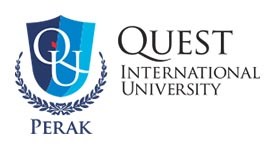
Courses:
38World Rank:
Scholarship: Yes
38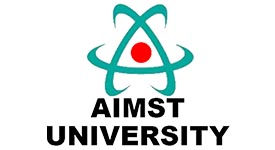
Courses:
43World Rank:
Scholarship: Yes
43
Courses:
91World Rank:
60Scholarship: Yes
91
Courses:
97World Rank:
801-850Scholarship: Yes
97
Courses:
80World Rank:
371Scholarship: Yes
80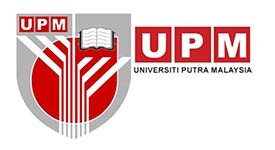
Courses:
56World Rank:
148Scholarship: Yes
56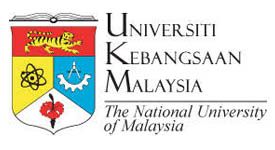
Courses:
208World Rank:
138Scholarship: Yes
208Top Universities for Microbiology in Malaysia
- Universiti Malaya (UM)
- Universiti Kebangsaan Malaysia (UKM)
- Universiti Sains Malaysia (USM)
- Universiti Putra Malaysia (UPM)
- Universiti Teknologi Malaysia (UTM)
- Taylor’s University
- International Islamic University Malaysia (IIUM)
- Universiti Malaysia Sarawak (UNIMAS)
- Monash University Malaysia
- Management & Science University (MSU)
Education Levels of Microbiology Course in Malaysia
Diploma in Microbiology in Malaysia
- Provides foundational knowledge, ideal for entry-level lab roles.
Undergraduate (Bachelor's) in Microbiology
- Covers core subjects like virology, immunology, and environmental microbiology.
- Prepares graduates for diverse career paths in healthcare, biotech, and food safety.
Master in Microbiology Malaysia
- Offers advanced research and specialized skills for industry and academic roles.
PhD in Microbiology
- Focuses on intensive research and expertise, leading to academic and senior industry positions.
| Education Level | Duration | Intakes | Entry Requirements | Tuition Fee |
|---|---|---|---|---|
| Diploma in Microbiology | 2–3 years | March, June, September | SPM/equivalent, with credits in Science and Maths | MYR 10,000–20,000/year |
| Bachelor’s in Microbiology | 3–4 years | March, June, September | A-Levels/STPM/equivalent, with Science background | MYR 18,000–30,000/year |
| Master’s in Microbiology | 1.5–2 years (full-time) | January, May, September | Bachelor’s in Microbiology/Biology or related field, IELTS/TOEFL for English proficiency | MYR 20,000–40,000/year |
| PhD in Microbiology | 3–5 years (full-time) | January, May, September | Master’s in Microbiology/Biology, research proposal submission, IELTS/TOEFL, may require interview | MYR 25,000–50,000 for entire program |
Diploma in Microbiology Course in Malaysia
Overview:
- A microbiology course covers essential topics like microbiological techniques, food and water microbiology, molecular biology, and microbial genetics. It emphasizes lab skills vital for industry roles. Top universities in Malaysia for studying microbiology include Universiti Kebangsaan Malaysia (UKM) and Universiti Putra Malaysia (UPM), known for their strong research and academic programs.
Duration of Diploma in Microbiology Course in Malaysia:
- 2 to 3 years, depending on the university or college.
Intakes to Study Microbiology Course in Malaysia:
- January, April, and September are the common intake periods.
Entry Requirements to Study Microbiology Course in Malaysia:
- SPM/O-Level or equivalent with a minimum of 3 credits in relevant subjects such as Science, Biology, or Mathematics.
- Some institutions may accept UEC (Unified Examination Certificate) or STPM as well.
- English proficiency (TOEFL/IELTS) may be required for international students.
Tuition Fee for Microbiology Course in Malaysia:
- The tuition fee typically ranges from RM 15,000 to RM 30,000 for the entire course, depending on the institution.
Syllabus - What You Study in Microbiology Course in Malaysia:
- Microbiological techniques
- Microbial genetics
- Immunology
- Virology
- Microbiology of the environment
- Biotechnology
- Laboratory sessions, practical labs as well as research project
Jobs for Diploma in Microbiology Course Holders in Malaysia:
Job Roles:
- Lab Technician
- Microbiologist
- Quality Control Analyst
- Research Assistant
- Environmental Microbiologist
- Laboratory Supervisor
- Healthcare and Hospitals
- Pharmaceutical and Biotechnology
- Food Safety and Quality Control
- Environmental Science and Research
Bachelor's in Microbiology Course in Malaysia
Overview:
- For the Bachelor's of Science in Microbiology program in Malaysia Students study topics such as molecular biology, microbiological methods, immunology microbiology of the environment, and microbiological genetics. The curriculum focuses on theoretic knowledge as well as practical abilities in lab research. The most reputable universities to study microbiology in Malaysia are Universiti Malaya (UM) and Universiti Putra Malaysia (UPM) both of which have excellent academic quality and opportunities for research for those who wish to be microbiologists.
Duration of Bachelor's in Microbiology Course in Malaysia:
- The typical duration is between 3 and 4 years
- Variations based on the institution and the program's design
- Concentration: Blends theory-based learning and practical lab experience.
Intakes to Study Microbiology Course in Malaysia:
- Common Intakes: March, June, September
- The availability of the service varies by university
- The flexibility of most universities is that they offer different intakes each year. This allows students to begin their studies from the start of each academic term.
- International Students: Flexible choices to students across the globe to submit applications in accordance with their school calendar.
Entry Requirements to Study Microbiology Course in Malaysia:
- In order to earn a diploma, students must meet the minimum requirements of SPM or equivalent and credit in Science and Mathematical Sciences.
- To be eligible for Bachelor's (Undergraduate) A-levels, STPM or equivalent, with an academic background in Science.
- For PhD and Master's degrees relevant Bachelor's or Master's degree. English competence (IELTS/TOEFL).
- Other Requirements: Certain universities might have requirements or requirements for interviewing.
Tuition Fee for Microbiology Course in Malaysia:
- Master's Degree in Microbiology: 10,000-MYR 20,000 annually
- Bachelor's Degree in Microbiology MYR 18,000 to MYR 30000 annually
- Master's Degree in Microbiology MYR 20, 000 up to MYR $40,000 annually
- Doctorate in Microbiology: MYR 30 up to MYR $50,000 each year
Syllabus - What You Study in Microbiology Course in Malaysia:
- Basic Microbiology Techniques
- Microbial Genetics and Biotechnology
- Immunology and Virology
- Environmental Microbiology
- Molecular Biology
- Microbial Physiology and Pathogenesis
- Medical Microbiology
- Food and Water Microbiology
- Microbial Ecology
- Practical Lab Work and Research Projects
Jobs for Graduates in Microbiology Course Holders in Malaysia:
Job Roles:
- Microbiologist
- Lab Technician
- Quality Control Analyst
- Research Scientist
- Environmental Microbiologist
- Clinical Microbiologist
Industries: Healthcare, Biotechnology, Pharmaceuticals, Food Safety, Environmental Science
Demand: A high demand due to the growing health and biotech industries.
Pay: MYR 3,000 - MYR 6,600 each month (varies depending on experience and the industry).
Master's in Microbiology Course in Malaysia
The Master's degree in Microbiology course offered in Malaysia provides advanced knowledge including microbial genetics immunology, molecular biology environmental microbiology, biotechnology and more. Students are involved in intense research and develop knowledge of lab methods. The top universities for studying microbiology in Malaysia are Universiti Malaya (UM) and Universiti Putra Malaysia (UPM) known for their research infrastructure and extensive microbiology program that allow students to focus on a range of areas of microbiology.
Duration of Master's in Microbiology Course in Malaysia:
- Average Duration: 1.5 up to two years (full-time)
- Part-Time Option: 3 - 4 years of age, offered in some schools
- Concentration: Includes coursework as well as an academic project, thesis or research.
Intakes to Study Master's in Microbiology Course in Maysia:
- Common Intakes: January, May, Septemberal
- Universities with University Variations: Certain universities might offer extra intakes, based on need.
- Flexible Start Dates Multiple intakes enable students to begin classes at the most convenient time.
- International Applications: Entry dates will be scheduled for international students' admission which allows students from a variety of countries.
Entry Requirements to Study Master's in Microbiology Course in Malaysia:
- Bachelor's Degree: A relevant bachelor's degrees in microbiology, biology or another closely related field. It is usually awarded with the minimum CGPA in the range of 2.75 (or equivalent).
- English Proficiency IELTS (6.0 or greater) or the equivalent of TOEFL in accordance with the university's requirements.
- Other Requirements: Certain universities might require research proposals, interview, or even work experience in the same disciplines.
Tuition Fee for Master's in Microbiology Course in Malaysia:
- Local students: approximately MYR 20.000 - MYR 3000 to complete the programme
- International Students: About MYR 250,000 - MYR 4000 for the whole programme
- Different tuition costs: Tuition rates differ by school and structures.
- Student Financial Aid: Grants, grants and other financial aid are offered in a wide range of schools.
Syllabus - What You Study in Master's in Microbiology Course in Malaysia:
- Advanced Microbial Genetics
- Molecular Biology Techniques
- Immunology and Immunotechnology
- Environmental Microbiology and Biotechnology
- Medical and Clinical Microbiology
- Microbial Pathogenesis
- Biostatistics and Data Analysis
- Research Methodology and Ethics
- Specialized Electives: Such as Food Microbiology or Industrial Microbiology
- Research Project/Thesis: Conducting hands-on investigation in a selected area of microbiology
Jobs for Master's in Microbiology Course Holders in Malaysia
Job Roles:
- Microbiologist
- Research Scientist
- Clinical Microbiologist
- Quality Assurance Manager
- Environmental Consultant
- Biotechnology Specialist
Industries: Healthcare, Pharmaceuticals, Biotechnology, Environmental Science, Food Safety
Demand: Excessive demand due to the growth of the biotech, healthcare and the environmental sector.
Salary range: MYR 4,500 - MYR 8,800 per month (varies according to experience, position as well as sector).
PhD in Microbiology Course in Malaysia
In the PhD in a PhD Microbiology course offered in Malaysia Students conduct cutting-edge studies in areas like biotechnology, microbial genetics the field of immunology, as well as environmental microbiology. The program focuses on individual research and aims to provide new information to the area. Universiti Malaya (UM) and Universiti Putra Malaysia (UPM) are the best choices to pursue an MSc in microbiology. They are with a strong research infrastructure and a knowledgeable faculty that is ideal for candidates pursuing doctoral degrees with a focus on cutting-edge microbiology research.
Duration of PhD in Microbiology Course in Malaysia:
- The typical duration is Between 3 and five years (full-time)
- Part-Time Option 5 to 7 Years according to the policies of your university
- Research Focus: Independently conducted research and dissertations under the direction of a faculty member, which culminates in a doctoral dissertation.
Intakes to Study PhD in Microbiology Course in Malaysia:
- Common Intakes: January, May, September
- Flexible options: Certain universities might offer extra intakes based on the availability of faculty.
- International Students: Acceptance dates are flexible for international students offering flexibility to students from different nations.
- Particular to the university: Go to individual sites for specific intake dates.
Entry Requirements to Study PhD in Microbiology Course in Malaysia:
- Master's Degree: Relevant Masters in Microbiology or Biology or any related field having the minimum CGPA in the range of 3.00 or equivalent.
- Research Proposal: The submission of the research proposal or declaration of research interests.
- English Proficiency IELTS (6.0 or greater) or the equivalent of TOEFL in accordance with the university's requirements.
- Additional requirements: Some institutions may need an interview.
Tuition Fee for PhD in Microbiology Course in Malaysia:
- Local students: MYR 25,000 - MYR 40000 for the whole programme
- Foreign Students: 30000 - MYR 50,000 to complete the programme
- Fees can vary depending upon the requirements of research or university institutions.
- Student Financial Aid: Grants, grants and other funding options could be offered in certain institutions.
Syllabus - What You Study in PhD in Microbiology Course in Malaysia:
- Advanced Research in Microbiology
- Molecular Microbiology and Genetics
- Immunology and Immunotechnologies
- Microbial Pathogenesis and Resistance
- Environmental Microbiology
- Biotechnology Applications in Microbiology
- Research Methodology and Statistical Analysis
- Specialized Research Areas: Food Microbiology, Clinical Microbiology, or Industrial Microbiology
- Dissertation or Thesis that is independent research focused on a unique research.
Jobs for PhD in Microbiology Course Holders in Malaysia:
Job Roles:
- Senior Research Scientist
- University Professor or Lecturer
- Biotech Consultant
- Clinical Microbiologist
- Biotechnology Product Developer
- Medical Researcher
Industries: Academia, Biotechnology, Pharmaceuticals, Healthcare, Environmental Science
Demand: A high demand is due to the rapid growth of research in the fields of science and technology.
Salary range: MYR 6,000 - MYR 12,000 a month (depending on your experience and the role you play).
Career Prospects of Microbiology in Malaysia
Microbiology courses in Malaysia provides promising job possibilities, considering that there is a need for highly skilled specialists within this sector is growing. The graduates can take on a wide range of positions in biotechnology, healthcare and food safety, environmental science as well as pharmaceuticals. The expanding healthcare and biotech sectors have led to a growing demand for microbiologists. It makes Malaysia an ideal location for a successful career this area.
The salaries for students of microbiology in Malaysia is dependent on the their experience and industry. Basic positions usually pay MYR 3,500-4,500 per month and more experienced microbiologists may make MYR 6,000 and higher per month. Particularized jobs, like those that require the completion of a Master of Science in Microbiology Malaysia or a substantial research expertise, usually attract higher wages.
Leading companies within Malaysia that are hiring experts in microbiology are healthcare facilities like KPJ Healthcare and Pantai Hospitals and biotech companies like Duopharma Biotech, and food security firms. The companies are seeking experts on the latest techniques at elite universities to satisfy increasing demands in the field. There is a significant increase in employment possibilities, a degree in microbiology Malaysia can lead to an exciting and rewarding job.
Application Process for Microbiology Course in Malaysia:
1. Application Documents Required:
- Completed application form (university-specific)
- Transcripts of Master's and Bachelor's Degrees (for pertinent classes)
- IELTS/TOEFL scores (proof of English competence)
- Curriculum Vitae (CV)
- Passport Copy
- Research Proposal (for Doctoral and Master's students)
- Notes of Reference (academic and professional)
- Educational Certificates (degree or diploma)
- Statement of Purpose/Personal Statement
- Portfolio (if required)
2. Application Process:
- Step 1: Do your research and pick the appropriate college and program.
- Step 2: Create and submit all required documentation via the online portal of the university.
3. Pay the application cost (if appropriate).
- Step 4: Await the decision on admission (interviews might be necessary to be a part of some courses).
- Step 5: Take a look at your admissions letter, and then affirm your acceptance.
- Step 6. Request a student visa (for students from abroad).
Visa Process for Studying Microbiology Course in Malaysia:
1. Apply for Admission:
- Make sure you are accepted into a recognized institution for the Microbiology course.
- Get an official acceptance letter from the school.
2. Prepare Documents for Visa Application:
- Valid Passports: at the very least six months in validity.
- Invitation Letter to Apply for Admission at the University: From the Malaysian University.
- Documentation of financial support Statements from banks or a an offer of a scholarship that shows your ability to afford tuition as well as the cost of living.
- Passport-sized photos: In accordance with the requirements of visas.
- Transcripts and Academic Certificates: Original copies that are certified of your prior education qualification.
- Health Insurance: Documentation of your health insurance during your time in Malaysia (sometimes necessary).
3. Apply for Student Visa:
- Send the necessary documents to The Malaysian Immigration Department as well as to the Malaysian Embassy within your country.
- Fill out your Visa Application Form and pay any fees applicable.
- Provide biometrics (fingerprints and photos) If requested.
4. Medical Check-up:
- A few universities or the immigration department might have a medical exam as well as a negative diagnosis on certain illnesses (e.g. tuberculosis, for instance) before granting the visa.
5. Receive Visa Approval:
- If you are approved, you'll get your Student Visa (single-entry).
- A visa acceptance letter (VAL) is given to you by your institution.
6. Arrive in Malaysia:
- When you arrive, finish your immigration procedure on arrival at The Malaysian airport.
- Join the university In order to register, you must complete the required campus formalities, such as medical checks and orientation.
7. Visa Extension (if it is applicable):
- If your programme lasts for longer than the timeframe for visas you can apply for an extension through the assistance of your university.
Application Timeline for International Students:
The process of applying to study Microbiology in Malaysia includes several crucial steps and deadlines for applications vary dependent on the institution. This is a rough outline of the timeline.
1. Pre-Application Study (6-12 months prior to intake)
- Universities and research programs that offer Microbiology classes in Malaysia.
- Examine entry requirements, fees for fees for tuition, as well as scholarships.
- Make sure you are able to meet the language competency requirements (IELTS/TOEFL).
2. The Application Form (3-6 months prior to the intake)
- Send your application to the selected university (either directly or through an agent).
- Create documents such as academic transcripts or passports English score on a language test Letters of recommendation as well as a statement of intent.
3. Acceptance Offer (2-4 months prior to intake)
- You will receive an offer letter from the institution, which includes information about the courses and the next steps required for admission.
- Confirm that you have accepted and then submit your deposit (if required).
4. Visa Applications (2-3 months prior to the intake)
- You can apply for a visa to study when you accept the invitation.
- The universities assist you with processing your visa after you've been approved.
5. Final Preparedness (1-2 months prior to the intake)
- Plan your travel, accommodation as well as financial arrangements.
- Get settled and get ready for your study.
Key Intakes:
The majority of institutions in Malaysia have three admissions to international students:
- January Intake
- May Intake
- September Intake
Scholarships for International Students:
Numerous institutions within Malaysia provide scholarships to assist international students pay for tuition as well as living costs. These are some of the most prestigious scholarships:
1. University-Specific Scholarships:
Monash University Malaysia Scholarships:
- Provides merit-based scholarships to undergraduate and postgraduate students.
- It covers up 50% tuition charges.
University of Malaya (UM) Scholarships:
- UM Excellence Scholarships available to international students on the basis of academic achievement.
- This includes tuition waivers as well as allowances for living expenses.
Taylor's University Scholarships:
- Taylor's University offers a range of international student scholarships such as The Global Mobility scholarships.
- It covers the tuition fee in part and lodging.
2. Government Scholarships:
Malaysia International Scholarship (MIS):
- The government offers a scholarship to high-achieving international students who wish to pursue advanced studies in Malaysia.
- The tuition fee is inclusive of all fees. It also includes a the living allowance and air travel.
The ASEAN Scholarship Program:
- Students who are from ASEAN countries that wish to earn postgraduate and undergraduate degree programs.
- It includes tuition as well as a living stipend.
3. External Scholarships:
- The Fulbright Program:
- Provides complete scholarships for students in the graduate program from the USA who wish to pursue their studies in Malaysia.
- The tuition allowance covers airfare as well as a monthly allowance.
Chevening Scholarships:
- UK government-funded grants are offered to students pursuing postgraduate studies.
- This includes tuition, travel allowance and living allowance.
4. Merit-based and Need-based Scholarships:
- Numerous universities provide Merit-based scholarship that are awarded to outstanding academic performers.
- The need-based scholarship is available to students who are financially challenged.
How to Apply for Scholarships:
- Visit the websites of your universities: Every university has its own scholarships page that has specific guidelines and dates for submission.
- Make supporting documents It is common to send your application, transcripts of your academic studies as well as a letter of recommendation along with a description of your purpose.
- You must meet eligibility requirements. Most scholarship awards are determined by academic achievement, therefore achieving excellent grades increases the chances of getting financial aid.
Application Tips:
- Get started early: Start the scholarship applications at least 6 to 12 months prior to your planned time of study.
- Keep your academics strong The majority of scholarships are based on merit So make sure you fulfill or even exceed academic requirements.
- Be on time: Follow the deadlines for applications to both colleges as well as scholarships to make sure your application will be taken into consideration.

